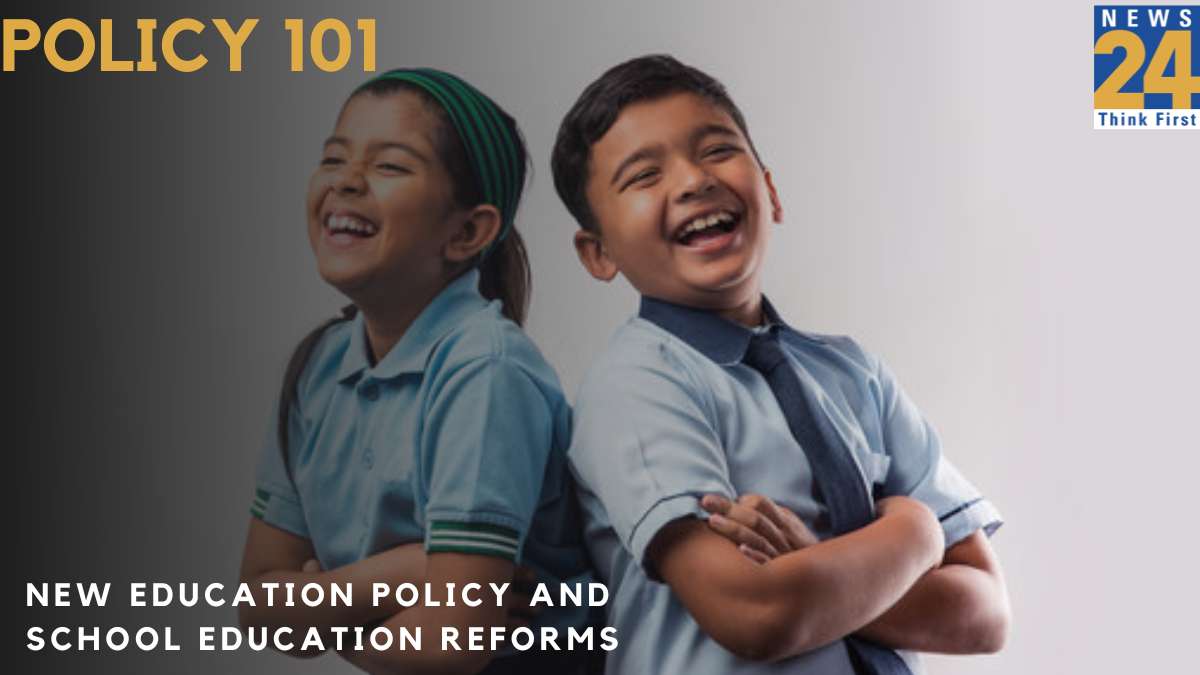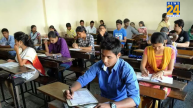The National Education Policy (NEP) 2020 is a significant step in India’s journey to universal access to education and, consequently, its national and global development goals. Its introduction came as a welcome response to low literacy and numeracy rates, high dropout rates, and academic inflexibilities in schools which could potentially hold India back from equipping its children with the skills, values, and options necessary to participate in a dynamic, globally connected 21st century economy. Changes to school level curriculum, pedagogy, and assessment reflect the new policy’s clear prioritisation of conceptual understanding and competency, careful curriculum and pedagogy design, multi-disciplinary learning, and an inclusive, value-oriented education.
Curriculum and Pedagogy
A major reform recommended by the policy is the substitution of the 10+2 structure with a 5+3+3+4 system which ensures early childhood care and education (ECCE) for children between the ages of 3-8 years. NEP also enforces multilingualism through a three language formula that allows children to study three languages compulsorily till Grade 5, and voluntarily till Grade 8 and 12. The National Mission on Foundational Literacy and Numeracy is tasked with ensuring that all children achieve desired competencies in learning, reading, writing and numeracy by Grade 3 and no later than Grade 5. Curricula are to also integrate arts, sports, and knowledge of Indian culture, values, and traditions to ensure more holistic child development, with the policy also providing for age-appropriate skilling through vocational training that is to be made available from Grade 6.
To facilitate outcome-based learning, the NEP recommends developing four National Curriculum Frameworks (NCFs) on ECCE, school education, teacher education, and adult education. Driven by inputs from State Curriculum Frameworks (SCF) developed through district-level consultations in states/ UTs, the NCFs can facilitate collaborative, bottom-up restructuring of curriculum and pedagogy that harmonises diverse inputs towards broad guidelines for equitable and quality education. To implement competency-based education, learning frameworks will also be developed for Science, Mathematics, English, Hindi, and Social Science for Grades 9-10 and for main subjects for Grades 11-12 so a shared understanding of competencies to be developed and evaluated can be established.
Samagra Shiksha Revamped
The Samagra Shiksha scheme, which addresses all school children, has also been revamped to align with NEP. Leveraging the “2 T’s- Teachers and Technology”, the scheme hopes to achieve higher Gross Enrolment Ratios (GER) across all levels of schooling by 2030. It creates provisions for upskilling teachers and developing high quality teaching and learning resources. Experiential and activity-based learning are mandatory in NEP’s pedagogical approach which is evident in allied initiatives like National Initiative for Proficiency in Reading with Understanding and Numeracy (NIPUN Bharat). Interactive and immersive methods such as storytelling, graphic novels, and curricular activities empower children to apply learned concepts to their environment and lives. Such pedagogy supplements other novel, technology-aided provisions like DIKSHA, PM-eVidya and Shiksha Vani that provide digital/on air/ online resources for teachers and students.
Assessment
The NEP promotes consistently tracking student progress against the explicit competency benchmarks and learning objectives through formative assessments. It also replaces the erstwhile reporting/ assessment method with a Holistic Progress Card (HPC) which will provide a “360-degree, multi-dimensional report” to capture each learner’s distinct individuality across domains. All children will mandatorily take school assessments at Grade 3, 5, and 8, with basic literacy, numeracy and foundational skills being assessed in Grade 3. Board exams at the secondary stage will be made easier, with the option of being taken up to two times in any given year in case a student wishes to improve their score. NEP also recommends the establishment of a National Assessment Centre, PARAKH (Performance Assessment, Review, and Analysis of Knowledge for Holistic Development) by the Ministry of Education (MoE), which will be an autonomous, expert body instituted to oversee the standards and quality of assessments in schools of all kinds, across geographies.
Way Forward for New Education Policy
While the NEP 2020 outlines ambitious yet vital steps towards ensuring high quality education accessible to all, its ambition must overcome practical hurdles at the ground-level. To this end, all stakeholders within the education ecosystem must work collaboratively to ensure optimal distribution and allocation of resources to ensure last-mile delivery of the policy and its provisions.
Also Read: Vision And Implementation Of National Education Policy (NEP) 2020













